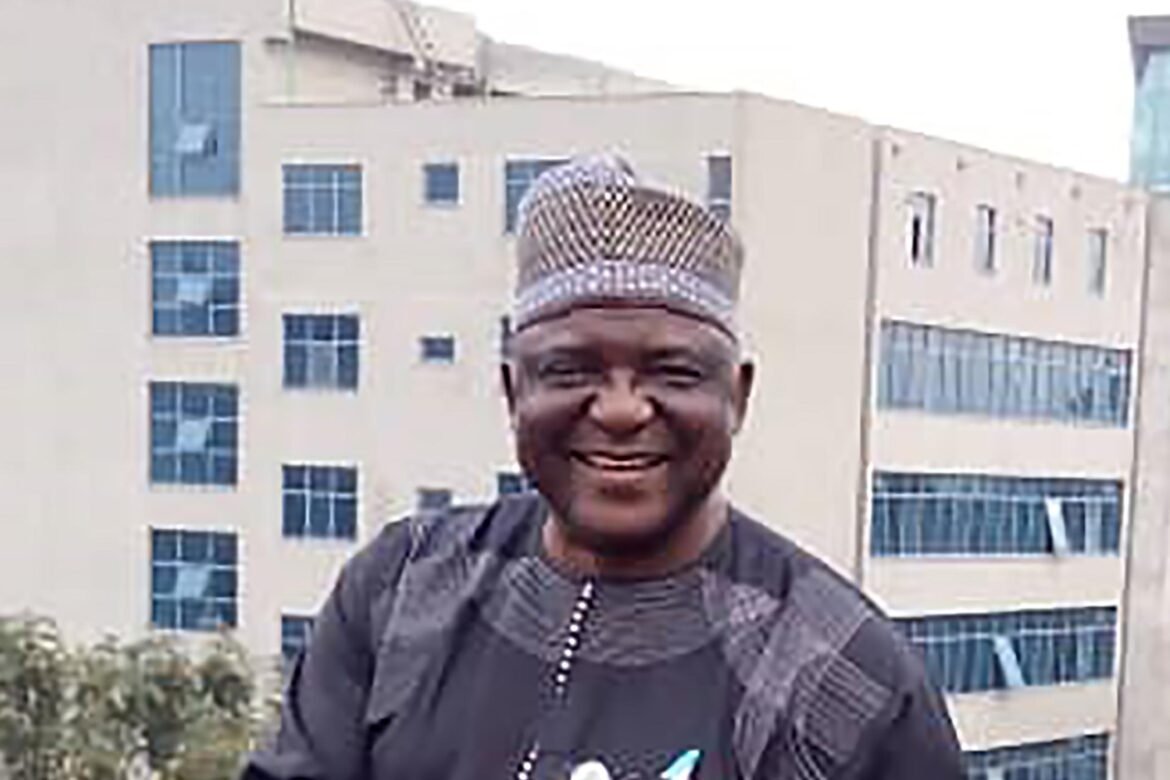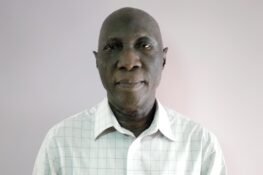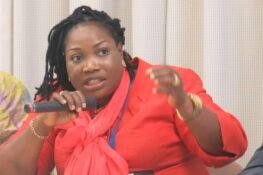Former Acting Executive Secretary of National Commission for Colleges of Education, and currently senior lecturer in English Department, Nassarawa State University, Dr. Alex Maiyanga, prioritises Nigeria’s education sector:
What do you think should be priority in fixing Nigerian education system?
This question presupposes that there are challenges in the Nigerian education sector. Education in Nigeria has suffered many policy somersaults over the years.
Policies you know are not laws and as such they can be flouted. For instance, the law on basic education is flouted by states because the Federal Government cannot sanction any state since education is on the concurrent list in Nigeria.
There are over 10-13 million children out of school and their population is still growing. Amongst the priorities for education in Nigeria, to me, is the mopping-up of these vulnerable population of 10-13 million children.
The former administration of President Jonathan experimented the dual mode of Almajiri schools in the North. This noble cause has not been sustained.
The result of what the North East and North West are going through today, is the neglect of education for about 50 years.
Any group that shuns Western education does that at its own peril.
If Boko Haram that loathes Western educationis using the product of Western science and technology to prosecute their ideology what then is logic behind the hatred for Western education?
Nigeria should abide by the prescription of UNESCO by budgeting over 27 per cent of our National budget for education and the states should do the same by budgeting over 27 per cent of their states’ budget for education.
The low budget provisions for global education in Nigeria cannot take care of Universities, COEs and Polytechnics. Better funding options can come from banks
Nigerians universities, polytechnics and colleges of education suffer from poor funding. What better funding options would you suggest for these institutions?
It is a fact that Nigeria has not been able to fund its tertiary institutions adequately. This is the reason for the frequent strikes by ASUU, COEASU, ASUP, and other non- teaching unions in these institutions.
The low budget provisions for global education in Nigeria cannot take care of Universities, COEs and Polytechnics. Better funding options can come from banks.
That is why I would suggest that the bill for the establishment of Education Bank should hastened and pass into law. Through this, tertiary institutions can source for loans to commercialize their discoveries and research results.
University of California is very instrumental to what is happening in Silicon Valley in the USA. Universities should aggressively convert their research findings into commercial value.
Present commercial ventures of pure water production, block making factory and sundry ventures show how dwarfish and our thinking are.
That is why I always teach my semantics students the commercial value of that course. Even history or theology has commercial value, if we can think very deeply.
I am not a prophet of doom, but I must warn that tertiary institutions should not wait for adequate funding from government for it will be like waiting for God or waiting for millipede to grow wings.
The three main thrust of a university is to teach, research and to carry out community services. The third leg is where our institutions have failed abysmally
In some societies, the synergy between employers and educational institutions help to develop curriculum that are in sync with modern societal realities. How can we achieve something similar in Nigeria?
The three main thrust of a university is to teach, research and to carry out community services. The third leg is where our institutions have failed abysmally.
There should be interface between the curriculum we develop and its implementation.
For this reason, I will call on the National Universities Commission to always invite our industrial giants to contribute in our curriculum development.
The industry, the Arts, the Sciences and other fields using the products of institutions should be able to tell institutions where they have failed to enable institutions review their curricula to suit modern realities.
Do you also share the view that Nigerians should be prepared to pay more for quality?
Absolutely! From the budget itself, we can observe that Nigeria has huge challenge. Nigeria’s budget to our GDP is a paltry 6% behind DR Congo’s eight per cent, South Africa’s 30% and USA 30 per cent.
Angola budgets twice ours, Algeria thrice ours and South Africa six times ours. From the quality and quantity of your budget one can begin to talk of the quality of our education.
According to Nelson Mandela, education is the most powerful weapon which you can use to change the world. Similarly, Kofi Annan said, education is the premise of progress and it is a human right with immense power to transform.
Of course, it is also said that if find education to be too expensive, you try ignorance. Indeed, Nigeria is paying dearly today for the many years of neglect of education.
The quantum of money that Nigeria is using to purchase arms and ammunitions would be enough to adequately rehabilitate all the 1st generation Universities, Polytechnics and Colleges of Education in Nigeria.
Even our local pidgin proverb will suffice the answer to your question: Better soup na moni kill am!! Converted to Standard English it means palatable soup can be cooked with good (enough) money.
Nigeria should devote above 27 per cent of our national budget to education. The wrong logic of other priority areas cannot stand the primacy of education because a well- informed populace spend less on health etc.
For instance, an informed farmer gets more yield per hectare because of the technique and skills he/she would deploy.
Let Nigeria experiment this for the next 50 years and we will realise that it will pay – off if we vote more money to education.
Please, ask the President, the Vice President, the Senate Pesident, the Speaker of the House of Representative and indeed the Chief Justice of the Federation, if, from their heart, they will send their children to a college of education
We have seen teachers retrenched for failing competency test. In Kaduna some teachers were retrenched for failing primary school questions in a test. Is this an indictment on colleges of education where these teachers are trained?
It was not only in Kaduna State. It happened in Kwara and Ekiti States. In fact, it was Kwara that started the whole scenario.
It is an indictment on colleges of education but with a reason.
Please, ask the President, the Vice President, the Senate Pesident, the Speaker of the House of Representative and indeed the Chief Justice of the Federation, if, from their heart, they will send their children to a college of education.
If we are true to ourselves, our colleges of education are a shadow of themselves because would- be students have seen the end from the beginning.
Teacher remuneration and allowances are the most discouraging factor. Many candidates would prefer university or polytechnic education rather than a college of education.
It is garbage in, garbage out to use computer terminology. Colleges of education can no more attract quality students because these students know that upon graduation, no landlord would rent their houses to them since their salaries are not regular.
In some instances, women are not allowed to marry teachers. The psychological truth is that these students enter into colleges of education grudgingly, study grudgingly, graduate grudgingly and come to teach grudgingly.
In countries that value education and their teachers, their welfare is in the frontline charge. Countries such as Finland, Namibia, Japan are living examples.
Any lasting solutions to intermitent ASUU strikes in this country?
The festering ASUU Strike is self- inflicted. I was in Singapore in 2008 for a workshop at the National University of Singapore.
In a welcome address by the Vice-Chancellor, he said, that the university had developed a programme to export Ph.D holders to other nations in the next ten to 20 years.
Only a university that is robustly funded can assert that. Until and unless we are sincere with our venture in education, there will be no end to ASUU strike. I do not think that Nigerian academics just love strikes.
The germane questions to ask is: Why are academics in countries such as Ghana, South Africa not going on strike.
Many Nigerians send their children to Ghana because education there is stable. Only once did we get near 14 per cent budgeting for education in Nigeria and that was during President Jonathan.
After that it has been eight per cent, seven per cent, nine per cent. Even at that, the releases could only be four per cent, five per cent and so on.
I am sorry to say, Nigeria is yet to know the value of education! Do you know that Namibia votes 20 per cent in their National budget to education? Under this situation, ASUU strikes will fester.
My advice is that all the so-called first-generation universities can be directed to offer 70 per cent of postgraduate and 30 per cent of undergraduate programmes
Nigerians have reportedly spent about $2billion on foreign education annually. Do you see this trend reversing soon and how?
When I was at the University of Ibadan, there was some thinking that the University would be converted to a purely postgraduate school to train only Masters and Doctorate degree candidates.
I guess that that idea has been shelved because the university needed more undergraduate students to shore-up the poor funding.
Under this circumstance, the postgraduate students that TETFUND is training is a multi-billion Naira drained to other countries for the Nation to beef-up her human resources.
I do not see the trend reversing unless and until our leaders understand the strategic place of education in National prosperity.
This money spent is even a drain because quite a sizeable number of these students do not come back.
This overseas training by TETFUND is exclusive of what individuals spend to train their children and wards outside the shores of this country.
My advice is that all the so-called first-generation universities can be directed to offer 70 per cent of postgraduate and 30 per cent of undergraduate programmes.
Through this, all students for higher degrees would be trained in Nigeria thereby reducing the cost to train abroad.
Should the policy banning children of public office holders from school abroad to compel those in authority to give our education the necessary attention and support?
The question is: what is the percentage of these public office holders? Critically calculated, it will be only about one per cent of the Nigeria population.
If that is true, compelling them or banning them will impinge on their fundamental human right to educate their children and wards where and how.
After all, who will do the banning? These same public officers are in the privileged positions to do the banning. I would rather think that Nigerians should hold their leaders accountable.
On the surface, one would be tempted to say yes to the policy but at a deeper level, it would be an unworkable policy.
Government should encourage private participation in education by creating an Education Bank where investors can collect loan to educate Nigerian children.
After all, we have Bank for Agriculture, Bank of Industry even Bank for Infrastructure. Let me end with a quote from Warren Buffett: “An idiot with a plan can beat a genius without a plan.” Nigeria’s plan for education is calamitous!!








